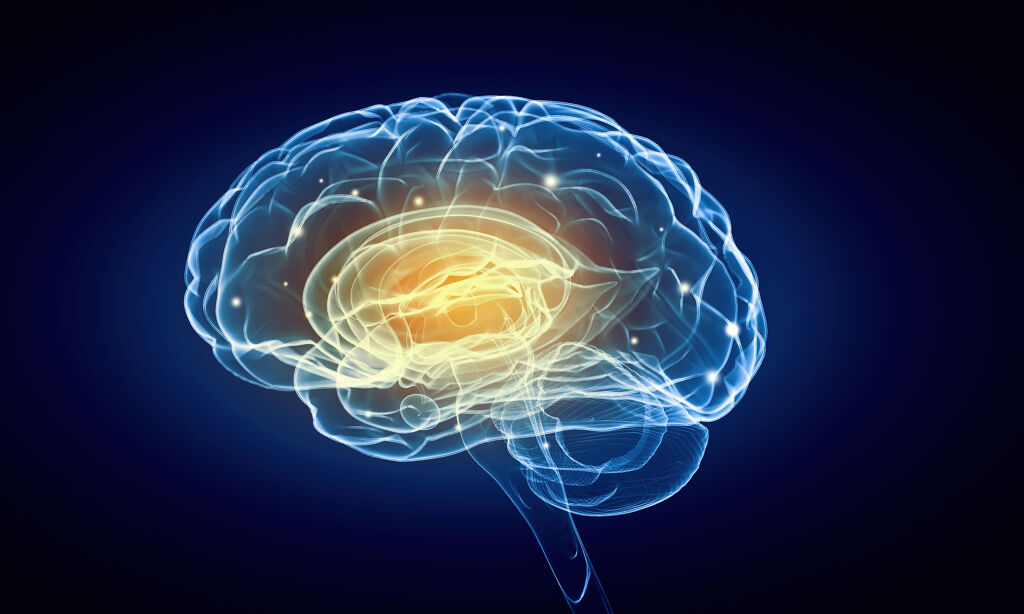Brain Inflammation, Autoimmunity, & How Toxins Affect Mental Health

Did you know that toxins like Lyme, Bartonella, mold and viruses can contribute to depression, anxiety, poor memory, mood swings, poor attention and other mental health issues?
Microbes and toxins can seriously affect and even damage mental health. Increasingly, research is showing that microbes such as the Borrelia bacterium that causes Lyme Disease, mold toxins or a virus like Epstein-Barr can all be major root causes of mental illness.
In this blog, we will look at the link between microbes and mental health:
- You will see how these toxins and microbes can cause brain inflammation
- You will learn how these microbes can cause autoimmunity in the brain
- You will see how brain inflammation and autoimmunity can affect brain function and lead to mental health problems
For more background on which specific toxins and microbes can damage mental health, see our previous blog on Infections & Mental Health. In future blogs, we will cover the most important lab tests for toxins and infections. We will also look at treatment strategies used in our Functional Medicine clinic that can help address these microbes and resolve mental health issues.
How can Toxins, Microbes & Infections Cause Brain Inflammation & Mental Health Problems?
Infections like Lyme, mold and viruses are a key root cause of inflammation. The inflammation can be systemic and throughout the entire body. It can also be localized and in the brain. Brain inflammation, or neuroinflammation, can be dangerous if it is severe. It can progress to encephalitis. Encephalitis is inflammation in the active tissue in the brain. The inflammation causes the brain to swell. This can lead to headache, stiff neck, sensitivity to light, mental confusion, and seizures. Encephalitis is commonly caused by a viral infection like Herpes Simplex virus or an autoimmune response (Ellul M, 2018).
Some Lyme patients can suffer from neurological issues even after treatment. Brain scans can show persistent neuroinflammation, even after a full course of antibiotics. This is because remnants of Borrelia, the bacteria that causes Lyme, can spread into brain tissue (Parthasarathy G, 2022).
Antibiotics may kill the bacteria, but remnants can remain and cause on-going inflammation. The bacterial remnants are even more inflammatory than live, intact bacteria. The remnants may actually be persister cells. Persister cells can resist antibiotic and other antimicrobial treatment. They become dormant to escape the effects of antimicrobials. After being dormant, which is a bit like being asleep, they can become re-activated. Persister cells have been shown in petri dish studies to re-grow into fully formed bacteria after antibiotics were applied.
Persister cells and their possible re-activation can help to explain some of the neurological symptoms and conditions that may persist after a Lyme infection (Parthasarathy G, 2022).
Exposure to molds, mycotoxins and water-damaged buildings can also cause neuropsychiatric symptoms and inflammation. People who are unable to properly detoxify mold may have symptoms of pain, fatigue, increased anxiety, depression and cognitive issues when exposed to a moldy environment.
Symptoms from mold exposure are extremely similar to those caused by immune system activation after a bacterial or viral infection (Harding CF, 2020).
Mold illness causes brain inflammation in the hippocampus, the part of the brain involved in memory, learning and the sleep-wake cycle (Harding CF, 2020). Patients with mold illness experience a decrease in the formation of new brain cells, anxiety and other neurological symptoms (Harding CF, 2020).
Brain Inflammation & Autoimmunity
In addition to the specific autoantibody attack against brain structures, there is some evidence that any autoimmune process may contribute to neuroinflammation.
What is Autoimmunity?
Autoimmunity occurs when the immune system mistakenly attacks itself. The immune system has a very sophisticated way to attack foreign and toxic substances to kill them off and protect the body. Sometimes, the system that is meant to protect us gets confused and attacks its own tissue. This is what happens in autoimmunity.
In a basic, healthy immune response, the immune system produces antibodies to protect against an unwanted foreign or toxic substance that can get into the body. Mold toxins are one example. Antibodies, made by the immune system, bind to these foreign substances (i.e., mold toxins) and eliminate them from the body.
Autoantibodies Emerge When There Is Autoimmunity
Instead of reacting to the foreign substance entering the body, autoantibodies respond to cells in the body that look like the foreign substance. In some cases, autoantibodies can cause an abnormal immune response. This over-reactive response is called an autoimmune response and can lead to the development of autoimmune diseases.
Autoantibodies are:
- Mistakenly made by the immune system
- Pathogenic dangerous antibodies that attack cells of your own body
With bacterial and viral infections, antibodies are produced to destroy the pathogenic bacteria or virus. If the immune system is over-activated, an antibody reaction can be too vigorous and become autoimmune. In this case, the immune system mistakenly attacks healthy cells. This kind of attack can happen in any part of the body, including the brain. If the immune system mistakenly attacks healthy brain cells, there is autoimmunity and inflammation in the brain. Over time, this can lead to neuropsychiatric symptoms.
Autoantibodies in the Brain
Autoantibodies (the self-attacking antibodies caused by autoimmunity) attack parts of the brain. New research is identifying specific circumstances in which autoantibody attacks occur in the brain.
One example is anti-NMDA receptor encephalitis. This is when the immune system creates autoantibodies that target NMDA receptors in the brain (Gibson LL, 2020). NMDA receptors are important for learning and memory, and are critical for spatial memory (Gibson LL, 2020). With a persistent autoantibody attack on NDMA receptors, the function of these cognitive areas can deteriorate.
To Read About Blog Topic, Scroll Down
Want To Work With Our Clinic?
Do you have a chronic or mystery illness that no one has been able to help you with? Are you simply wanting to re-connect with a healthier version of yourself? It’s Time To Finally Feel Better!
Autoantibodies against Dopamine
There is another type of brain inflammation or encephalitis, called basal ganglia encephalitis. In this case, autoantibodies target the basal ganglia part of the brain (Chain JL, 2020) and receptors which may include the dopamine receptors.
When autoantibodies bind to or block dopamine receptors, the brain malfunctions causing neuropsychiatric symptoms. The autoantibodies also cause inflammation in the basal ganglia. This can contribute to symptoms like obsessions, compulsions, tics, ADHD-like behavior, mood swings, seizures, anxiety and depression (Chain JL, 2020).
In addition to dopamine antibodies, infection-induced antibodies against tubulin and lysoganglioside (immune system attacking neurons) may be created.
The full extent of the functional implications of these antibodies remains to be seen. There may be problems with learning, memory, attention, and many other aspects of brain function that result from the insult to the brain tissue through this autoimmune process.
The underlying cause of these brain issues is infection, inflammation and autoimmunity in the brain. They are all inter-linked and can negatively affect brain functioning and contribute to mental disorders.
Autoimmunity, the Blood Brain Barrier & Mental Illness
Recent research shows that patients with psychiatric disorders have an increased incidence of both bacterial and viral infections (Belz, 2018). In one study, the risk of developing a mental illness increases depending upon the number and severity of infections a person has had over their lifetime (Köhler-Forsberg O, 2019). There seems to be an ‘infection load’ that influences brain health and mental disorders.
The blood brain barrier (BBB) is a protective barrier for the brain. It prevents toxins in the blood from entering the brain. Stress, infection and inflammation can compromise the integrity of the blood brain barrier. (Zong S, 2017) The blood brain barrier can be ‘leaky’, similar to ‘leaky‘ gut when the intestinal lining of the gut becomes permeable.
In leaky BBB, autoantibodies can enter the brain and cause inflammation in the brain, or neuroinflammation. The auto antibodies might attack brain tissue. This can compromise brain function and result in dysfunctional behavior, affecting emotions and cognition (Zong S, 2017).
Autoantibodies and pathogens in the brain can also cause overactive immune cells. If the immune system gets over-activated, it can possibly damage brain tissue.
Autoimmune causes of brain inflammation may be at least as common as viral causes, according to one study (Uy CE, 2021). As autoimmunity continues to affect more and more of the population, it is expected that the growing range of autoimmune causes of brain inflammation will become more common than infectious causes of brain inflammation (Uy CE, 2021).
The Link between Autoimmunity & Mental Illness
The link between immune function/autoimmunity and behavior/mental illness and has been hypothesized for many decades. In particular, autoimmune encephalitis demonstrates how abnormal autoimmune targeting of certain proteins in the brain can result in neuropsychiatric symptoms (Sæther LS, 2022). The high incidence of autoimmune disorders with neuropsychiatric features shows the likely cross-reactivity of autoantibodies with brain antigens (Kayser MS, 2011).
The following examples support the effects of autoimmunity on mental health:
- Autoantibodies have been seen in schizophrenia patients as early as the 1930’s. There are antibodies to various neurotransmitter receptors, like dopamine, in the brains of psychiatric patients.
- Viruses cause classical inflammation and low-level neuroinflammation. Research shows viral infections, virus-related products, or virus-induced autoimmunity can all play a role in the development of mental illnesses (Bechter, 2013).
- Mold patients report cognitive, physical and emotional symptoms. Neuropsychological testing indicates damage from mold exposure is similar to that from mild traumatic brain injury (TBI). Mycotoxins may do damage through inflammatory responses mediated by cytokines (Ratnaseelan AM, 2018).
Mold & Mental Illness
Mold is a much larger health issue than most people realize. 25-50% of American homes have damp conditions where mold can grow. 25% of Americans are genetically predisposed to struggle with detoxifying mold toxins from the body. This is a recipe for significant issues for many people.
Because only 25% of the population have impaired detoxification of mold toxins, many people discount the home as a source of symptoms and chronic illness. A spouse, family member or housemate may not have the same symptoms or does not become ill. In these cases, the home environment is often overlooked as the source of the problem in diagnostic evaluations.
However, mold toxins are dangerous for people genetically predisposed to not detoxify these toxins properly. The bioaccumulation of this toxin in tissue and organs including the brain, can lead to chronic and systemic inflammation. In fact, the diagnosis given to those dealing with biotoxin accumulation from mold is called Chronic Inflammatory Response Syndrome (CIRS). Multiple markers of inflammation tend to remain elevated, sometimes long after exposure to mold toxins.
How Mold Exposure & Mast Cells Can Contribute to Neuropsychiatric Disorders
In susceptible individuals, mold exposure can cause mitochondrial dysfunction and lead to apoptosis (cell death) in neurons. In mice, mold can produce apoptosis in sensory neurons and inflammation via pro-inflammatory cytokine immune cells in the brain (Ratnaseelan AM, 2018).
Mycotoxins, from mold exposure, can stimulate mast cells and microglia. Many pro-inflammatory cytokines are secreted from mast cells, which are found in all tissue including the brain. Mast cells and microglia (immune cells in the brain) interactions are linked to neuropsychiatric disorders, and especially ‘brain fog’.
Mast cell proliferation and increased inflammation can cause a ‘leaky’ blood brain barrier. This happens via an increase in mast cells and cytokines, allowing circulating environmental toxins to get into the brain, triggering microglia proliferation and inflammation. This disrupts neuronal connectivity or the transfer of information between brain cells (Ratnaseelan AM, 2018).
Recent research is showing an association between these kinds of environmental triggers, mast cell proliferation and another type of neurological disorder: autism. People with autism show signs of localized inflammation in the brain. Autism is 10 times higher in children with mastocytosis (a condition caused by an excess number of mast cells) than in the general population (Ratnaseelan AM, 2018)
*********
Summary
- Infections like Lyme, Lyme co-infections, mold and viruses are a key root cause of inflammation. They can cause systemic inflammation in the whole body or they can cause localized inflammation in the brain. Inflammation in the brain can cause autoimmunity in the brain and impaired cognitive abilities.
- The autoimmune process can happen in the brain and the immune system can mistakenly attack brain tissue. This also leads to impaired cognitive abilities.
- The blood brain barrier (BBB) exists to protect the brain from toxins and microbes entering the brain. But the BBB can become leaky, just like the gut can. With a leaky BBB, toxins, microbes and self-attacking molecules called autoantibodies can enter the brain, cause inflammation and brain autoimmunity and impair cognitive abilities.
- Once inflammation and autoimmunity are established in the brain, symptoms of mental illness can start to appear.
In our clinic, we are experts at identifying root causes of chronic and mental illnesses. We regularly diagnose and treat hard-to-diagnose conditions like mold illness, chronic Lyme Disease, Lyme co-infections and others. Once treated, we see vast improvements in our patients mental and overall health. In addition, we are Lyme-literate doctors. We help people to address the root causes of illness and improve their health, with both natural and pharmaceutical approaches, depending on the individual case.
** Please stay tuned for our next Blog! **
References
1. Ellul M, Solomon T. Acute encephalitis – diagnosis and management. Clin Med (Lond). 2018;18(2):155-159. doi:10.7861/clinmedicine.18-2-155
2. Parthasarathy G, Gadila SKG. Neuropathogenicity of non-viable Borrelia burgdorferi ex vivo. Sci Rep. 2022;12(1):688. Published 2022 Jan 13. doi:10.1038/s41598-021-03837-0
3.Harding CF, Pytte CL, Page KG, et al. Mold inhalation causes innate immune activation, neural, cognitive and emotional dysfunction. Brain Behav Immun. 2020;87:218-228. doi:10.1016/j.bbi.2019.11.006
4 .Gibson LL, McKeever A, Coutinho E, Finke C, Pollak TA. Cognitive impact of neuronal antibodies: encephalitis and beyond. Transl Psychiatry. 2020;10(1):304. Published 2020 Sep 1. doi:10.1038/s41398-020-00989-x
5. Chain JL, Alvarez K, Mascaro-Blanco A, et al. Autoantibody Biomarkers for Basal Ganglia Encephalitis in Sydenham Chorea and Pediatric Autoimmune Neuropsychiatric Disorder Associated With Streptococcal Infections. Front Psychiatry. 2020;11:564. Published 2020 Jun 24. doi:10.3389/fpsyt.2020.00564
6. Belz M, Rehling N, Schmidt U, Wiltfang J, Kis B, Wolff-Menzler C. Bacterial infections among patients with psychiatric disorders: Relation with hospital stay, age, and psychiatric diagnoses. PLoS One. 2018;13(12):e0208458. Published 2018 Dec 4. doi:10.1371/journal.pone.0208458
7. Köhler-Forsberg O, N Lydholm C, Hjorthøj C, Nordentoft M, Mors O, Benros ME. Efficacy of anti-inflammatory treatment on major depressive disorder or depressive symptoms: meta-analysis of clinical trials. Acta Psychiatr Scand. 2019;139(5):404-419. doi:10.1111/acps.13016
8. Zong S, Hoffmann C, Mané-Damas M, Molenaar P, Losen M, Martinez-Martinez P. Neuronal Surface Autoantibodies in Neuropsychiatric Disorders: Are There Implications for Depression?. Front Immunol. 2017;8:752. Published 2017 Jul 5. doi:10.3389/fimmu.2017.00752
9. Uy CE, Binks S, Irani SR. Autoimmune encephalitis: clinical spectrum and management. Pract Neurol. 2021;21(5):412-423. doi:10.1136/practneurol-2020-002567
10. Sæther LS, Ueland T, Haatveit B, et al. Inflammation and cognition in severe mental illness: patterns of covariation and subgroups [published online ahead of print, 2022 Dec 28]. Mol Psychiatry. 2022;10.1038/s41380-022-01924-w. doi:10.1038/s41380-022-01924-w
11. Kayser MS, Dalmau J. The emerging link between autoimmune disorders and neuropsychiatric disease. J Neuropsychiatry Clin Neurosci. 2011;23(1):90-97. doi:10.1176/jnp.23.1.jnp90
12. Bechter K. Virus infection as a cause of inflammation in psychiatric disorders. Mod Trends Pharmacopsychiatry. 2013;28:49-60. doi:10.1159/000343967
14. Ratnaseelan AM, Tsilioni I, Theoharides TC. Effects of Mycotoxins on Neuropsychiatric Symptoms and Immune Processes. Clin Ther. 2018;40(6):903-917. doi:10.1016/j.clinthera.2018.05.004
Are You Suffering From A Chronic Illness?
Does your current health situation look like this…
- Do you feel that you have tried many things and either nothing works, or the treatment does not hold?
- Have you been told that there is nothing that can be done to reverse your illness and you just need to manage symptoms?
- Does your illness impact your work, your family, your happiness and your social life?
We specialize in finding answers and solutions for complicated chronic illness when people feel like they have tried everything. If this sounds like you, book a free call with us to see if we are the right fit for your health goals.
Dr. Miles has spoken for the following organizations:















